IYF CATEGORIES
The International Yoga Federation (IYF) designed eight championship categories to reflect the multidimensional nature of yoga — as both a sport and an art.These categories were created to offer an inclusive, creative, and engaging experience for participants of all backgrounds, ensuring that everyone can find a space to express their unique yoga journey.
Each category highlights a different aspect of yoga practice — from precision and discipline to creativity, rhythm, and teamwork — illustrating that yoga is not limited to physical performance, but is a living art that unites body, mind, and spirit.
By combining athletic discipline with artistic expression, IYF’s eight-category system transforms yoga competitions into global celebrations of unity, creativity, and human potential.
IYF CATEGORIES
1. Yoga Acrobatic
Combining strength, balance, and trust, this category showcases acrobatic teamwork and the unity between partners. It highlights yoga’s physical dynamism and harmony in coordinated movement.2. Yoga Artistic
An expressive performance that merges creativity with yoga. Movements, emotion, and storytelling come together to reveal the art within discipline.3. Yoga Asana
Rooted in yoga asanas, this category focuses on precision, alignment, and stability. It represents the essence of yoga as a discipline.4. Yoga Athletic
A dynamic display of endurance, focus, and body control. It reflects yoga’s evolution into a modern sport that builds both physical and mental strength.5. Yoga Choreography
Sequences are performed in harmony with rhythm and form, turning yoga into a narrative of flow and unity. This category celebrates creativity, coordination, and synchronization.6. Yoga Dance
Bridging yoga and performing arts, this category uses rhythm, grace, expression to create joyful, vibrant performances inspired by the art of dance.7. Yoga Flow
A seamless and mindful progression of asanas guided by breath. This flow promotes awareness, focus, and the experience of inner balance.8. Yoga Rhythmic
Integrating music and tempo, this category highlights harmony between breath, motion, and sound — symbolizing the universal rhythm of life.These eight categories ensure that yoga lovers from every continent — regardless of style, skill level, or physical ability — can take part in this global event.
They make each championship more colorful, expressive, and joyful — turning yoga into a universal language that bridges sport, art, and humanity.
INTERNATIONAL YOGA CHAMPIONSHIPS' MEDALISTS
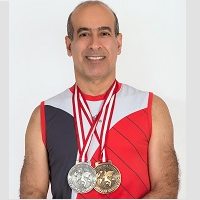
MOHAMMAD ALI MIRZAJANI
SARVANDANI
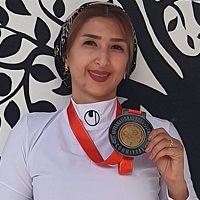
MINA SEDIGHI
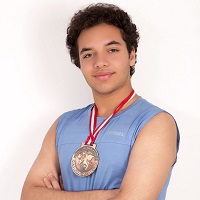
SEPEHR MOAVENI

JAKE MCKEE
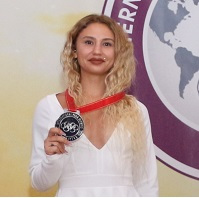
SEMA GUMUS

ELISA RAGER

PELIN DUMAN

ERIC ULDALL

VILDAN GURBUZ

HANNAH BACARON

ORKUN TOLUN

GISELA CIANCERUSO
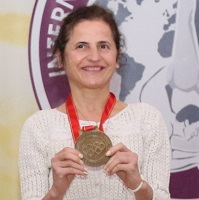
SERPIL GOKHAN
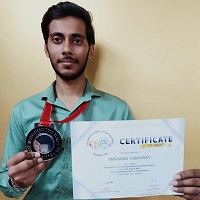
PRITANSH VARSHNEY

AYSE BAS

CLARE DIN

EYLEM BAL
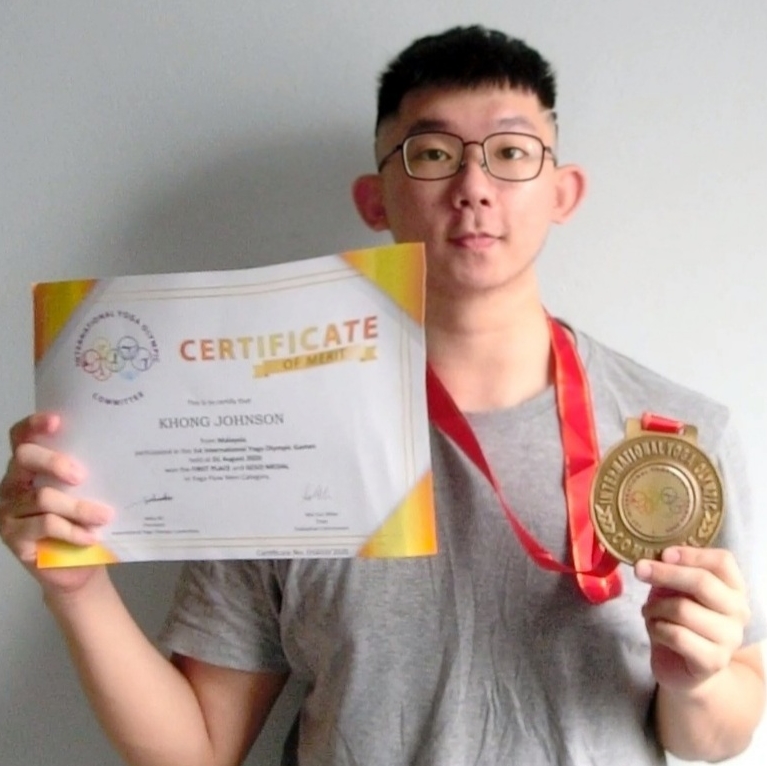
CHRISTOPHER KHONG
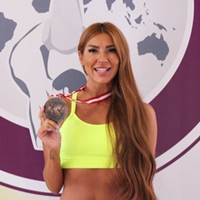
MERVE TANRIVERDI
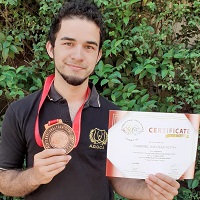
GABRIEL OZUNA
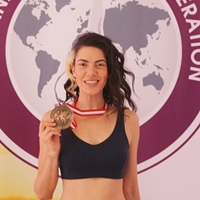
SELVA ARI
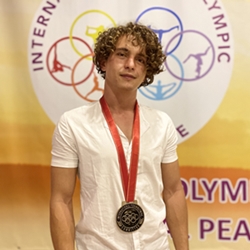
CIHAN CELIK
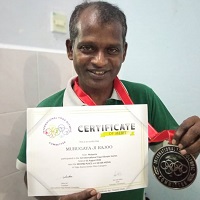
MURUGAYA JI RAJOO

CILER KARATAS
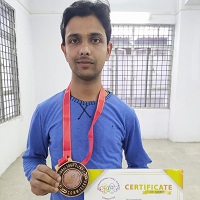
SHAMBHU CHAKRABORTY
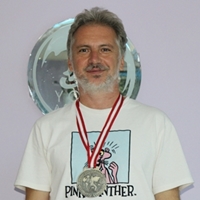
OKTAY AKAY

ERIK PERSSON
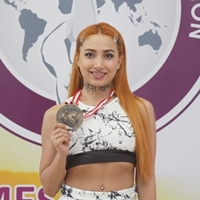
NAVA NUR TUZUNER
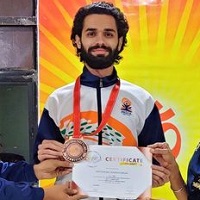
BHUPESH NANDURKAR

MAHIDE SONDIKME
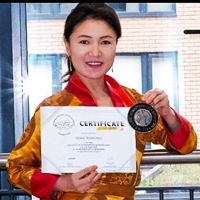
YESHI WANGMO

SAIM HAHOLU

IMELDA TURNER
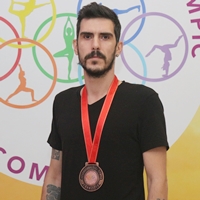
ENGIN PULAT
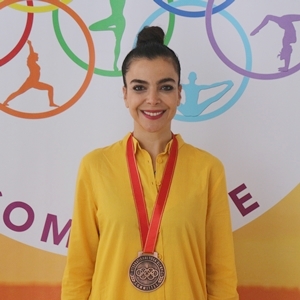
ACELYA CELKAN

SOURAV GHOSH

SHIEDA EILERD
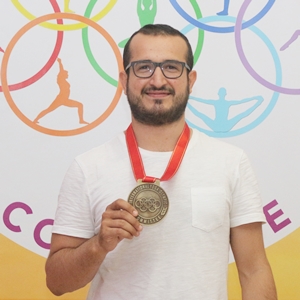
MUSAB KENDIRCI

RAMON MOLES I DOMENECH
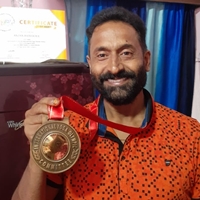
ANJAN BANERJEE

UGUR OZKAN

SHIVAM RAJ MOURYA

BIRGUL YILDIRIM
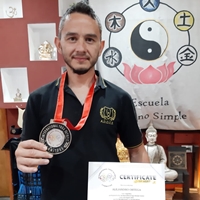
ALEJANDRO ORTEGA
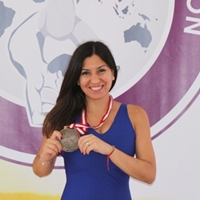
NEVAL KUTUK

TANMOY DAS

BIRGUL YENİCERI
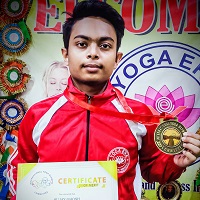
SUJAY GHOSH

DEMET KOSE
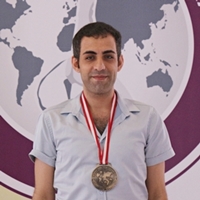
ORCUN ALKAN

RAYHANEH MIRZAJANI
SARVANDANI

ARSHIA GHIYAM DOST

SOHEIL SEKHAVATI RAD
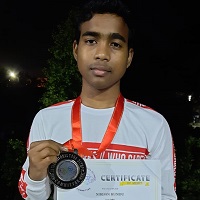
NIRBAN KUNDU

VAISHNAVI KUMARI
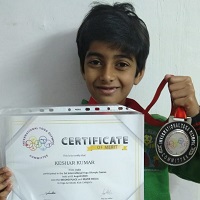
KESHAR KUMAR

NIDHI DOGRA

KERRI B
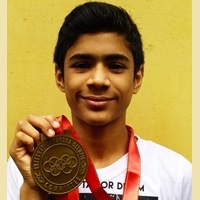
SUMIT DAY

KERRI
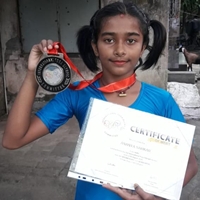
ANANYA SARKAR
SPORTING AND TECHNICAL RULES
INTERNATIONAL YOGA FEDERATION
SPORTING AND TECHNICAL RULES’ BOOK
Copyright © 2020 International Yoga Federation
OBJECTIVES OF THE INTERNATIONAL YOGA FEDERATION
Our main goal is to govern Yoga and elevate it to the status of an official Olympic sport. We assist individuals in countries where Yoga has not yet been developed to establish National Yoga Federations.
We are committed to combating the use of prohibited drugs, all forms of violence, and injustice in all sports.
The International Yoga Federation does not permit any political, racial, or religious discrimination among its members. In all IYF activities, all members must conform to the requirements of fair play and non-discrimination.
ANTI-DOPING FIGHT
All forms of doping are strictly prohibited.
The list of banned substances is published and regularly updated by WADA.
In the IYF Anti-Doping Rules, anti-doping provisions are stated in conjunction with the World Anti-Doping Code.
GENDER EQUALITY
Yoga is a sport that is more popular among women than men. As yoga becomes more popular, the participation of women in sports overall will increase proportionally, leading to a positive impact on gender equality.
Download the Sporting and Technical Rules and Posture List as pdf
ANTI- DOPING RULES AND POLICIES
IYF adopts the World Anti-Doping Code and fully supports its purpose, which is to:
- Protect the athlete's fundamental right to participate in a doping-free sport and thus promote health, fairness, and equality for athletes worldwide;
- Ensure a harmonized, coordinated and effective anti-doping programme on the international and national level with regard to detection, deterrence, and prevention of doping.
IBSA does this through enforcing its anti-doping rules that are in full compliance with the World Anti-Doping Code.
IYF does this at the international and national level through enforcing its anti-doping rules that are in full compliance with the World Anti-Doping Code.
What is doping?
Institutions such as WADA and the International Olympic Committee (IOC) define 'Doping' as the use of prohibited drugs or methods by an athlete to improve training and sporting results.
Doping is prohibited in sports. This is because doping and medication abuse present a considerable risk to health for athletes and give them an unfair advantage over other athletes, which goes against the principle of fair play that is embedded in the sport.
Athletes’ responsibilities about anti-doping both in and out of competition:
- Compliance with the IYF’s Anti-Doping Rules and relevant policies
- Always being available for sample collection (urine or blood)
- Ensuring that no prohibited substances enters one’s body and no prohibited method used,
- Making sure that any treatment is not prohibited according to the Prohibited List.
Link to International Standard for Testing and Investigations Art.
Download the International Standard for Testing and Investigations Art. 
WADA Anti-Doping Code
The Code is the fundamental and universal document upon which the World Anti-Doping Program in sports is based. The purpose of the Code is to advance anti-doping efforts through universal harmonization of core anti-doping elements
Links to key anti-doping documents:
- Link to WADA Anti-Doping Code
- Link to WADA List of Prohibited Substances and Methods
Why is doping banned in sports?
For an athlete or coach, the use of doping substances or doping methods to enhance the performance is completely wrong according to the spirit of the sport.
Drug misuse to get more advantage is unfair to other athletes competing in the sport and also can be harmful to an athlete's health. It damages the value of sport. To achieve integrity and fairness in the sport, it is critical for athletes to stay free from prohibited substances.
Education about Anti-Doping Code
Athletes and coaches will be given full information, advice, and guidance to avoid the use of prohibited substances and remain 100% clean from them.
National federations should also adopt the WADA Code to remain accredited by IYF. An education program will be also available for them. IYF and National Federations will work together on this subject to get support from athletes and coaches in your country.
IYF anti-doping rules apply to athletes, competitors, and their support staff participating in the competitions organized under IYF or any of its national member organisations. It is their responsibility to ensure that any medication they take to treat an illness or condition does not fall under the WADA Prohibited List.
• WADA Quiz - Test your knowledge of anti-doping,
• WADA Doping Control Leaflet (English),
• WADA Dangers of Doping Leaflet (English),
• At-a-Glance: About Anti-Doping leaflet
• At-a-Glance: The Doping Control Process leaflet
• WADA Doping Control Video.
WADA Anti-Doping Code
The Code is the fundamental and universal document upon which the World Anti-Doping Program in sports is based. The purpose of the Code is to advance anti-doping efforts through universal harmonization of core anti-doping elements
Links to key anti-doping documents:
- Link to WADA Anti-Doping Code
- Link to WADA List of Prohibited Substances and Methods
Why is doping banned in sports?
For an athlete or coach, the use of doping substances or doping methods to enhance the performance is completely wrong according to the spirit of the sport.
Drug misuse to get more advantage is unfair to other athletes competing in the sport and also can be harmful to an athlete's health. It damages the value of sport. To achieve integrity and fairness in the sport, it is critical for athletes to stay free from prohibited substances.
Education about Anti-Doping Code
Athletes and coaches will be given full information, advice, and guidance to avoid the use of prohibited substances and remain 100% clean from them.
National federations should also adopt the WADA Code to remain accredited by IYF. An education program will be also available for them. IYF and National Federations will work together on this subject to get support from athletes and coaches in your country.
IYF anti-doping rules apply to athletes, competitors, and their support staff participating in the competitions organized under IYF or any of its national member organisations. It is their responsibility to ensure that any medication they take to treat an illness or condition does not fall under the WADA Prohibited List.
• WADA Quiz - Test your knowledge of anti-doping,
• WADA Doping Control Leaflet (English),
• WADA Dangers of Doping Leaflet (English),
• At-a-Glance: About Anti-Doping leaflet
• At-a-Glance: The Doping Control Process leaflet
• WADA Doping Control Video.

If you have any questions or need further clarification, please do not hesitate to contact;
info@internationalyogafederation.com.tr
THE REFEREE CERTIFICATION PROGRAM
EDUCATION PROGRAM FOR REFEREES/JURIES
Purpose
- To provide the necessary equipment for the referees who will take part in the national and international competitions organized by the International Yoga Federation (IYF).
- To convey information about the process, evaluation and scoring principles to be followed before, during and after the competitions.
-To take part in the competitions in accordance with the refereeing principles and rules.
Scope
The evaluation principles and scoring system in the program cover all categories.
Categories
Agenda
For more information : info@internationalyogafederation.com.tr
The application form
Purpose
- To provide the necessary equipment for the referees who will take part in the national and international competitions organized by the International Yoga Federation (IYF).
- To convey information about the process, evaluation and scoring principles to be followed before, during and after the competitions.
-To take part in the competitions in accordance with the refereeing principles and rules.
Scope
The evaluation principles and scoring system in the program cover all categories.
Categories
Yoga Asana
Yoga Choreography
Agenda
- Refree Levels
- Referee Panels
- General Referee Principles
- Duties and Responsibilities of the Referees
- Assignment Principles
- Categories and Evaluation Principles
- Scoring Criteria
For more information : info@internationalyogafederation.com.tr
The application form
REFEREE COURSE PROGAM
Date: 2022, June
The international referee course was held online.
2021, May 9
Referee Course was held online
2020, July 26
IYF CATEGORIES
The International Yoga Federation (IYF) designed eight championship categories to reflect the multidimensional nature of yoga — as both a sport and an art.These categories were created to offer an inclusive, creative, and engaging experience for participants of all backgrounds, ensuring that everyone can find a space to express their unique yoga journey.
Each category highlights a different aspect of yoga practice — from precision and discipline to creativity, rhythm, and teamwork — illustrating that yoga is not limited to physical performance, but is a living art that unites body, mind, and spirit.
By combining athletic discipline with artistic expression, IYF’s eight-category system transforms yoga competitions into global celebrations of unity, creativity, and human potential.
IYF CATEGORIES
1. Yoga Acrobatic
Combining strength, balance, and trust, this category showcases acrobatic teamwork and the unity between partners. It highlights yoga’s physical dynamism and harmony in coordinated movement.2. Yoga Artistic
An expressive performance that merges creativity with yoga. Movements, emotion, and storytelling come together to reveal the art within discipline.3. Yoga Asana
Rooted in yoga asanas, this category focuses on precision, alignment, and stability. It represents the essence of yoga as a discipline.4. Yoga Athletic
A dynamic display of endurance, focus, and body control. It reflects yoga’s evolution into a modern sport that builds both physical and mental strength.5. Yoga Choreography
Sequences are performed in harmony with rhythm and form, turning yoga into a narrative of flow and unity. This category celebrates creativity, coordination, and synchronization.6. Yoga Dance
Bridging yoga and performing arts, this category uses rhythm, grace, expression to create joyful, vibrant performances inspired by the art of dance.7. Yoga Flow
A seamless and mindful progression of asanas guided by breath. This flow promotes awareness, focus, and the experience of inner balance.8. Yoga Rhythmic
Integrating music and tempo, this category highlights harmony between breath, motion, and sound — symbolizing the universal rhythm of life.These eight categories ensure that yoga lovers from every continent — regardless of style, skill level, or physical ability — can take part in this global event.
They make each championship more colorful, expressive, and joyful — turning yoga into a universal language that bridges sport, art, and humanity.
INTERNATIONAL YOGA CHAMPIONSHIPS' MEDALISTS

MOHAMMAD ALI MIRZAJANI
SARVANDANI

MINA SEDIGHI

SEPEHR MOAVENI

JAKE MCKEE

SEMA GUMUS

ELISA RAGER

PELIN DUMAN

ERIC ULDALL

VILDAN GURBUZ

HANNAH BACARON

ORKUN TOLUN

GISELA CIANCERUSO

SERPIL GOKHAN

PRITANSH VARSHNEY

AYSE BAS

CLARE DIN

EYLEM BAL

CHRISTOPHER KHONG

MERVE TANRIVERDI

GABRIEL OZUNA

SELVA ARI

CIHAN CELIK

MURUGAYA JI RAJOO

CILER KARATAS

SHAMBHU CHAKRABORTY

OKTAY AKAY

ERIK PERSSON

NAVA NUR TUZUNER

BHUPESH NANDURKAR

MAHIDE SONDIKME

YESHI WANGMO

SAIM HAHOLU

IMELDA TURNER

ENGIN PULAT

ACELYA CELKAN

SOURAV GHOSH

SHIEDA EILERD

MUSAB KENDIRCI

RAMON MOLES I DOMENECH

ANJAN BANERJEE

UGUR OZKAN

SHIVAM RAJ MOURYA

BIRGUL YILDIRIM

ALEJANDRO ORTEGA

NEVAL KUTUK

TANMOY DAS

BIRGUL YENİCERI

SUJAY GHOSH

DEMET KOSE

ORCUN ALKAN

RAYHANEH MIRZAJANI
SARVANDANI

ARSHIA GHIYAM DOST

SOHEIL SEKHAVATI RAD

NIRBAN KUNDU

VAISHNAVI KUMARI

KESHAR KUMAR

NIDHI DOGRA

KERRI B

SUMIT DAY

KERRI

ANANYA SARKAR
SPORTING AND TECHNICAL RULES
INTERNATIONAL YOGA FEDERATION
SPORTING AND TECHNICAL RULES’ BOOK
Copyright © 2020 International Yoga Federation
OBJECTIVES OF THE INTERNATIONAL YOGA FEDERATION
Our main goal is to govern Yoga and elevate it to the status of an official Olympic sport. We assist individuals in countries where Yoga has not yet been developed to establish National Yoga Federations.
We are committed to combating the use of prohibited drugs, all forms of violence, and injustice in all sports.
The International Yoga Federation does not permit any political, racial, or religious discrimination among its members. In all IYF activities, all members must conform to the requirements of fair play and non-discrimination.
ANTI-DOPING FIGHT
All forms of doping are strictly prohibited.
The list of banned substances is published and regularly updated by WADA.
In the IYF Anti-Doping Rules, anti-doping provisions are stated in conjunction with the World Anti-Doping Code.
GENDER EQUALITY
Yoga is a sport that is more popular among women than men. As yoga becomes more popular, the participation of women in sports overall will increase proportionally, leading to a positive impact on gender equality.
Download the Sporting and Technical Rules and Posture List as pdf
ANTI- DOPING RULES AND POLICIES
IYF adopts the World Anti-Doping Code and fully supports its purpose, which is to:
- Protect the athlete's fundamental right to participate in a doping-free sport and thus promote health, fairness, and equality for athletes worldwide;
- Ensure a harmonized, coordinated and effective anti-doping programme on the international and national level with regard to detection, deterrence, and prevention of doping.
IBSA does this through enforcing its anti-doping rules that are in full compliance with the World Anti-Doping Code.
IYF does this at the international and national level through enforcing its anti-doping rules that are in full compliance with the World Anti-Doping Code.
What is doping?
Institutions such as WADA and the International Olympic Committee (IOC) define 'Doping' as the use of prohibited drugs or methods by an athlete to improve training and sporting results.
Doping is prohibited in sports. This is because doping and medication abuse present a considerable risk to health for athletes and give them an unfair advantage over other athletes, which goes against the principle of fair play that is embedded in the sport.
Athletes’ responsibilities about anti-doping both in and out of competition:
- Compliance with the IYF’s Anti-Doping Rules and relevant policies
- Always being available for sample collection (urine or blood)
- Ensuring that no prohibited substances enters one’s body and no prohibited method used,
- Making sure that any treatment is not prohibited according to the Prohibited List.
Link to International Standard for Testing and Investigations Art.
Download the International Standard for Testing and Investigations Art. 
WADA Anti-Doping Code
The Code is the fundamental and universal document upon which the World Anti-Doping Program in sports is based. The purpose of the Code is to advance anti-doping efforts through universal harmonization of core anti-doping elements
Links to key anti-doping documents:
- Link to WADA Anti-Doping Code
- Link to WADA List of Prohibited Substances and Methods
Why is doping banned in sports?
For an athlete or coach, the use of doping substances or doping methods to enhance the performance is completely wrong according to the spirit of the sport.
Drug misuse to get more advantage is unfair to other athletes competing in the sport and also can be harmful to an athlete's health. It damages the value of sport. To achieve integrity and fairness in the sport, it is critical for athletes to stay free from prohibited substances.
Education about Anti-Doping Code
Athletes and coaches will be given full information, advice, and guidance to avoid the use of prohibited substances and remain 100% clean from them.
National federations should also adopt the WADA Code to remain accredited by IYF. An education program will be also available for them. IYF and National Federations will work together on this subject to get support from athletes and coaches in your country.
IYF anti-doping rules apply to athletes, competitors, and their support staff participating in the competitions organized under IYF or any of its national member organisations. It is their responsibility to ensure that any medication they take to treat an illness or condition does not fall under the WADA Prohibited List.
• WADA Quiz - Test your knowledge of anti-doping,
• WADA Doping Control Leaflet (English),
• WADA Dangers of Doping Leaflet (English),
• At-a-Glance: About Anti-Doping leaflet
• At-a-Glance: The Doping Control Process leaflet
• WADA Doping Control Video.
WADA Anti-Doping Code
The Code is the fundamental and universal document upon which the World Anti-Doping Program in sports is based. The purpose of the Code is to advance anti-doping efforts through universal harmonization of core anti-doping elements
Links to key anti-doping documents:
- Link to WADA Anti-Doping Code
- Link to WADA List of Prohibited Substances and Methods
Why is doping banned in sports?
For an athlete or coach, the use of doping substances or doping methods to enhance the performance is completely wrong according to the spirit of the sport.
Drug misuse to get more advantage is unfair to other athletes competing in the sport and also can be harmful to an athlete's health. It damages the value of sport. To achieve integrity and fairness in the sport, it is critical for athletes to stay free from prohibited substances.
Education about Anti-Doping Code
Athletes and coaches will be given full information, advice, and guidance to avoid the use of prohibited substances and remain 100% clean from them.
National federations should also adopt the WADA Code to remain accredited by IYF. An education program will be also available for them. IYF and National Federations will work together on this subject to get support from athletes and coaches in your country.
IYF anti-doping rules apply to athletes, competitors, and their support staff participating in the competitions organized under IYF or any of its national member organisations. It is their responsibility to ensure that any medication they take to treat an illness or condition does not fall under the WADA Prohibited List.
• WADA Quiz - Test your knowledge of anti-doping,
• WADA Doping Control Leaflet (English),
• WADA Dangers of Doping Leaflet (English),
• At-a-Glance: About Anti-Doping leaflet
• At-a-Glance: The Doping Control Process leaflet
• WADA Doping Control Video.

If you have any questions or need further clarification, please do not hesitate to contact;
info@internationalyogafederation.com.tr
THE REFEREE CERTIFICATION PROGRAM
EDUCATION PROGRAM FOR REFEREES/JURIES
Purpose
- To provide the necessary equipment for the referees who will take part in the national and international competitions organized by the International Yoga Federation (IYF).
- To convey information about the process, evaluation and scoring principles to be followed before, during and after the competitions.
-To take part in the competitions in accordance with the refereeing principles and rules.
Scope
The evaluation principles and scoring system in the program cover all categories.
Categories
Agenda
For more information : info@internationalyogafederation.com.tr
The application form
Purpose
- To provide the necessary equipment for the referees who will take part in the national and international competitions organized by the International Yoga Federation (IYF).
- To convey information about the process, evaluation and scoring principles to be followed before, during and after the competitions.
-To take part in the competitions in accordance with the refereeing principles and rules.
Scope
The evaluation principles and scoring system in the program cover all categories.
Categories
Yoga Asana
Yoga Choreography
Agenda
- Refree Levels
- Referee Panels
- General Referee Principles
- Duties and Responsibilities of the Referees
- Assignment Principles
- Categories and Evaluation Principles
- Scoring Criteria
For more information : info@internationalyogafederation.com.tr
The application form
REFEREE COURSE PROGAM
Date: 2022, June
The international referee course was held online.
2021, May 9
Referee Course was held online
2020, July 26
International Yoga Federation
info@internationalyogafederation.com.tr
Address: 5438 Smiley Dr. Los Angeles, CA90016 / USA
Address: Harmanyolu Ust Sok. Sisli, Istanbul / Turkiye
info@internationalyogafederation.com.tr
Address: 5438 Smiley Dr. Los Angeles, CA90016 / USA
Address: Harmanyolu Ust Sok. Sisli, Istanbul / Turkiye
All rights reserved by International Yoga Federation!
It might be unlawful to copy, distribute, disclose or otherwise use information contained in this web site is forbidden except otherwise written permission is obtained. Contact via email or phone to request more information.
Mobile friendly software: www.eticaret.com.tr

